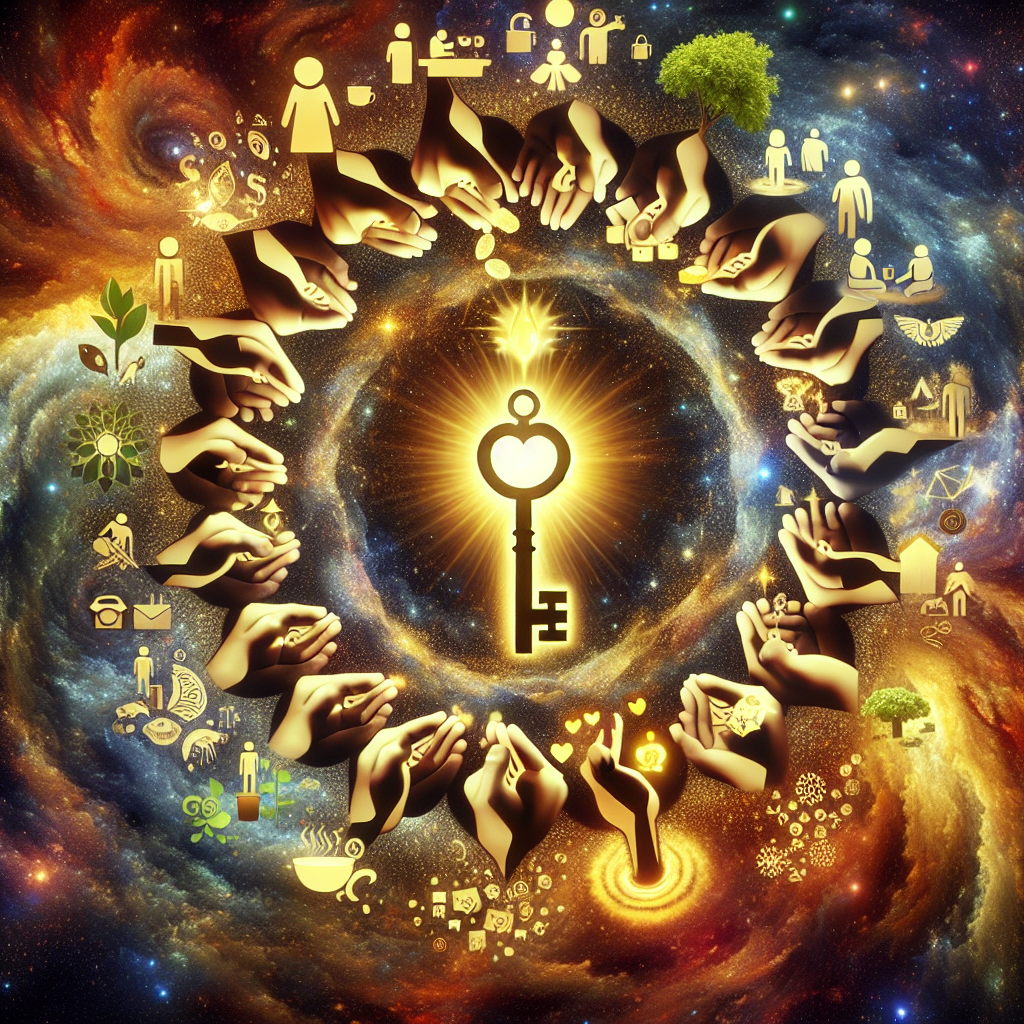In an age where negativity often dominates headlines and social media feeds, it’s essential to remember the power of positivity and the ripple effect it can create. The concept of karma, deeply rooted in various spiritual and philosophical traditions, emphasizes that our actions have consequences. When we commit small acts of kindness and compassion, we unleash a positive energy that not only uplifts individuals but can also provoke transformative changes in communities and the world at large.
Understanding Karma
Karma, derived from the Sanskrit word "karman," means action, work, or deed. It refers to the law of moral causation, where every action generates energy that could be either positive or negative. In simpler terms, the good we do tends to return to us in unexpected ways, reinforcing the idea that our deeds create a cycle of goodness or badness. This cyclical nature evokes a sense of responsibility, urging us to think carefully about our actions and their potential impacts.
The beauty of karma is that it operates on a micro and macro level. A tiny act of kindness may seem insignificant, but it can have innumerable repercussions. To illustrate, let’s consider everyday situations where individuals perform acts of kindness.
Small Acts, Big Changes
1. Simple Gestures of Kindness
A smile to a stranger, holding the door open for someone, or offering a compliment can seem trivial. However, these simple connections spark positive feelings, igniting a sense of community and interconnectedness. Research indicates that acts of kindness can elevate mood, reduce stress, and even lead to increased feelings of happiness in both the giver and receiver.
2. Volunteering Time
Engaging in volunteer work transforms not only the lives of those you are helping but also amplifies your own sense of purpose. Whether it’s serving at a local soup kitchen, tutoring children, or cleaning up a neighborhood park, volunteering spreads goodwill. The volunteers often inspire others to lend a helping hand, creating an ongoing cycle of positivity that can flourish in the community.
3. Supporting Local Businesses
In challenging economic climates, supporting local businesses can have far-reaching implications. Choosing to shop at small, local shops over large corporations prioritizes the local economy, fosters community ties, and encourages the growth of unique services and products. By investing in your community, you create a healthier economic environment, ensuring community members thrive together.
4. Sharing Knowledge and Skills
One of the most personal acts of kindness is sharing your knowledge or skills with others. Whether mentoring a colleague, tutoring a student, or simply sharing tips and advice, your investment in someone else’s success can empower them to achieve their goals. When individuals feel capable and supported, the confidence gained often propels them to extend the same encouragement to others.
5. Environmental Responsibility
Acts of kindness can also extend to Mother Earth. Practicing environmental stewardship—like reducing waste, planting trees, or promoting recycling—reflects a commitment not just to the planet but also to future generations. Each environmentally conscious decision contributes to a healthier world, leading others to engage in sustainable practices as they witness positive changes in their surroundings.
The Ripple Effect of Kindness
The ripple effect illustrates how one small act of kindness can lead to a cascade of further kindness. Imagine a scenario where one person helps another, who then feels inspired to help someone else. This creates a chain reaction, subsequently multiplying the original act’s impact. Research supports this phenomenon, indicating that kindness is contagious. When we perform acts of kindness, we inspire others to follow suit, creating a community rife with positivity.
Moreover, in a broader societal context, collective acts of kindness can lead to significant social change. Movements advocating for equality, justice, and environmental sustainability—all rooted in altruistic intentions—often begin with small groups of individuals committed to making a difference. When these individuals inspire others to join their cause, the movement gains momentum, much like a well-placed stone creating ripples in a pond.
The Practical Benefits of Positive Karma
Beyond the philosophical and spiritual benefits of good karma, there are tangible personal advantages. Engaging in kindness not only elevates others but can also enhance your well-being, lowering stress levels and improving mental health. Scientific studies show that people who perform regular acts of kindness experience lower levels of depression and anxiety, find greater life satisfaction, and even enjoy improved physical health.
1. Building Relationships
Fostering an environment where positivity reigns encourages strong relationships. Kindness breeds trust and fosters connections, whether among friends, family, or colleagues. Through acts of kindness, we create bonds that strengthen community ties and foster collaboration.
2. Fostering Resilience
During difficult times, kindness provides solace. When individuals experience support from their community, it fosters resilience and helps communities weather challenges together. The power of collective kindness can mobilize communities, leading them through adversity.
3. Creating a Legacy
Ultimately, the legacy we leave is often defined by how we treat others. Acts of kindness contribute to a lasting, positive impact on those around us. The more we practice kindness, the more it becomes ingrained in our communities, ensuring positive karma continues long after we’re gone.
Conclusion
Unlocking the power of positive karma lies in recognizing the significance of small acts of kindness. By engaging in individual and collective efforts to uplift ourselves and each other, we can usher in a wave of transformative positivity in the world. Each of us holds the potential to inspire change. By committing to acts of kindness, we cultivate a legacy of compassion and interconnectedness that can significantly change the world.
FAQs
Q1: What is karma in simple terms?
A1: Karma refers to the principle of cause and effect, where our actions (good or bad) generate corresponding outcomes. Positive actions tend to lead to positive results, while negative actions create negative consequences.
Q2: Can small acts of kindness really change the world?
A2: Yes! Small acts of kindness create ripples of positivity, inspiring others to engage in similar behavior. Collectively, these acts can contribute to significant social changes and foster a sense of community.
Q3: How can I incorporate more kindness into my daily life?
A3: You can incorporate kindness by performing simple gestures, volunteering your time, supporting local businesses, sharing knowledge, and being environmentally conscious in your daily routines.
Q4: What are some examples of small acts of kindness?
A4: Examples include smiling at a stranger, writing a thank-you note, helping someone with their groceries, picking up litter, or donating to a local charity.
Q5: Is there any scientific evidence supporting the benefits of kindness?
A5: Yes, research shows that engaging in acts of kindness can improve mental health, reduce stress, and enhance overall well-being for both the giver and the receiver.
It looks like you submitted a one-word prompt: “Prompt.” Could you provide more details about what you’re looking for? Are you interested in a writing prompt, a question about a specific topic, or perhaps something else? Let me know how I can assist you!, #Unlocking #Power #Positive #Karma #Small #Acts #Change #World, #Unlocking #Power #Positive #Karma #Small #Acts #Change #World, 1735348317, unlocking-the-power-of-positive-karma-how-small-acts-can-change-the-world





